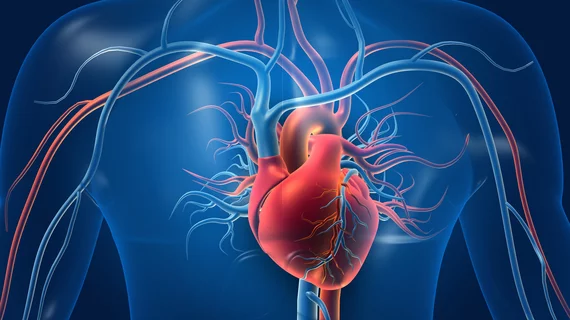COVID-19 infections impact cardiovascular disease
The full impact of COVID-19 infections, even mild and moderate cases, is still being understood. And now, recent research has revealed that the medium and long-term impact of an acute illness may be associated with cardiovascular events, such as venous thromboembolism, stroke and myocardial infarction.
U.K.-based researchers examined more than 20,000 participants from the UK Biobank who had recorded COVID-19 infection status. The UK Biobank is a large cohort of middle-aged volunteers recruited between 2006 and 2010. Researchers published their findings in Heart.
The analysis found that of the patients with confirmed COVID-19, 80% did not require hospitalization. In 9% of cases, compared to 0.7% of control subjects, evidence of at least one incident of myocardial infarction, stroke, heart failure, atrial fibrillation, venous thromboembolism, pericarditis, cardiovascular mortality, ischaemic heart disease mortality and all-cause mortality was recorded. Cardiovascular events were 3% more frequent in those with compared to those without (0.5%) confirmed COVID-19 infection.
“In those hospitalized with COVID-19 as a primary illness, the risk of venous thromboembolism, heart failure, stroke and myocardial infarction were markedly elevated,” wrote first author Anda Bularga, of the Centre for Cardiovascular Science, University of Edinburgh, Edinburgh, U.K., et al.
In addition, there was a vast excess of mortality in all groups with COVID-19, and it was the greatest among those hospitalized with COVID-19 as a primary or secondary diagnosis compared to those who were not admitted. Researchers also found that cardiovascular risks were greatest in the first 30 days after infection, but remained higher than controls after that initial 30-day period.
The study adds to the ongoing dialogue about the long-term impact of a COVID-19 infection. The findings underscore the potential need for greater attention to management of cardiovascular risk and a low threshold for cardiovascular investigations of patients exposed to COVID-19 for prevention and timely treatment of cardiovascular events.

